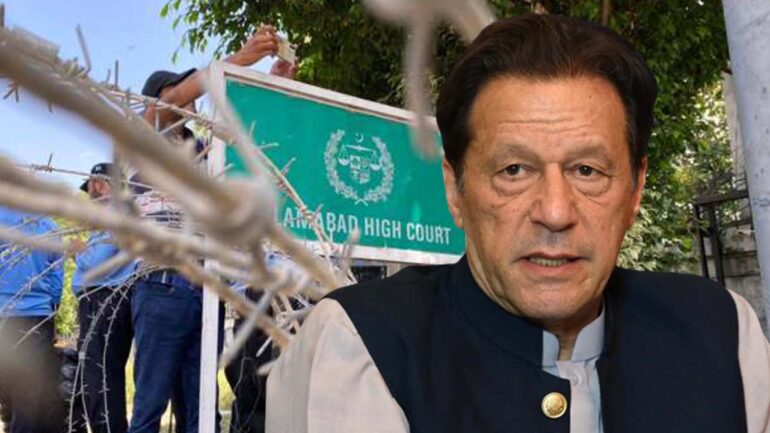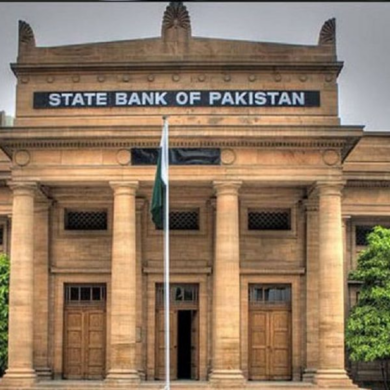Islamabad High Court (IHC) ruled on Thursday to maintain the indictment of Pakistan Tehreek-e-Insaf (PTI) Chairman Imran Khan in the cipher case, rejecting his petition challenging the charges.
IHC Chief Justice Aamer Farooq presided over the hearing and directed that Imran Khan be given a “fair trial” in the case.
The cipher case was realted to a diplomatic cabal that Imran Khan allegedly did not return, with the charge sheet asserting that the document contained a threat from the United States to remove him from office, as claimed by PTI.
Imran Khan had previously been convicted and sentenced to three years in prison in the Toshakhana graft case on August 5. Although his sentence was suspended by the IHC on August 29, he remained in custody due to his judicial remand in the cipher case.
The Federal Investigation Agency (FIA) submitted a charge sheet in a special court under the Official Secrets Act on September 30, naming PTI leader Shah Mahmood Qureshi and Imran Khan as the principal accused in the cipher case.
Both leaders were indicted on Monday, pleading not guilty. The court subsequently summoned witnesses for October 27 and requested the prosecution to provide evidence substantiating the allegations.
Imran Khan’s petition against his indictment argued that the charges were framed hastily and called for the process to be declared “illegal, unlawful, and against the settled principles of the Code of Criminal Procedure.”
The PTI chairman’s lawyer, Salman Safdar, in today’s hearing contended that essential steps were overlooked in the case, including the incomplete provision of documents to Imran Khan, affecting his understanding of the charges.
After hearing the arguments, the court reserved its verdict on Imran Khan’s petition, emphasizing the unprecedented nature of the case and the need for careful consideration of arguments presented by both sides.
Imran Khan’s petition highlighted significant procedural irregularities, including the absence of crucial evidence, which, according to legal experts, could impact the trial’s legitimacy.



